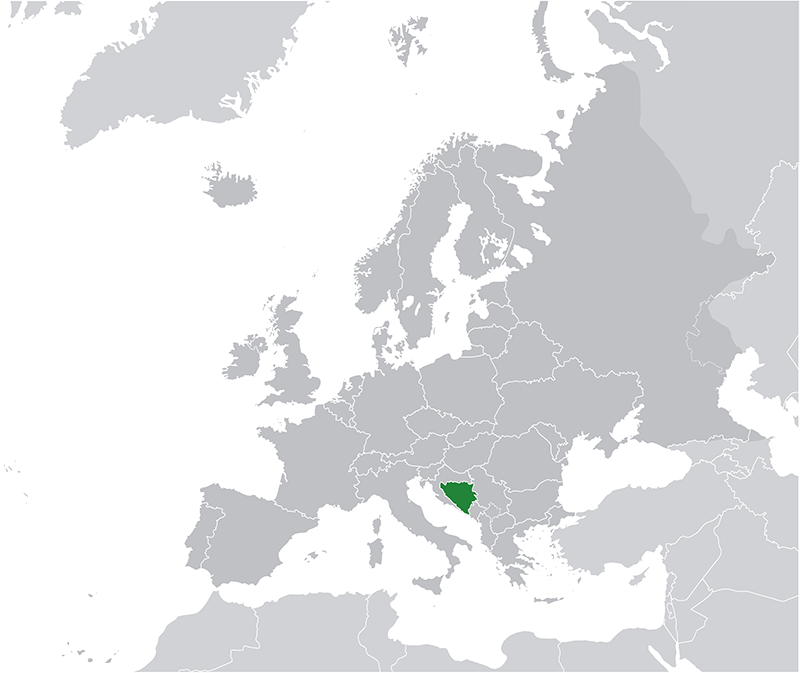
- Population:
- 3,164,000
- Religion:
- Islam
Bosnia and Herzegovina has a complex history, influenced by Illyrian, Roman, and Slavic cultures. In the Middle Ages, it was an independent kingdom before falling under Ottoman rule in the 15th century. Later, it was annexed by Austria-Hungary in 1878. After World War I, it became part of Yugoslavia, remaining under its rule until its declaration of independence in 1992. The country then faced a brutal war marked by ethnic conflict. Since the Dayton Agreement in 1995, Bosnia and Herzegovina has worked toward political stability and European integration.
Bosnia and Herzegovina is a country in Southeastern Europe, located on the Balkan Peninsula. It shares borders with Croatia to the north, west, and south; Serbia to the east; and Montenegro to the southeast. It has a small coastline along the Adriatic Sea, about 20 kilometers long. The country covers an area of approximately 51,209 square kilometers and has a population of around 3.3 million people. The capital and largest city is Sarajevo. Bosnia and Herzegovina operates as a democratic republic with a bicameral legislature. The country is known for its cultural diversity, natural landscapes, and complex history. It is a member of the United Nations, the Organization for Security and Co-operation in Europe (OSCE), and aspires to join the European Union and NATO.





